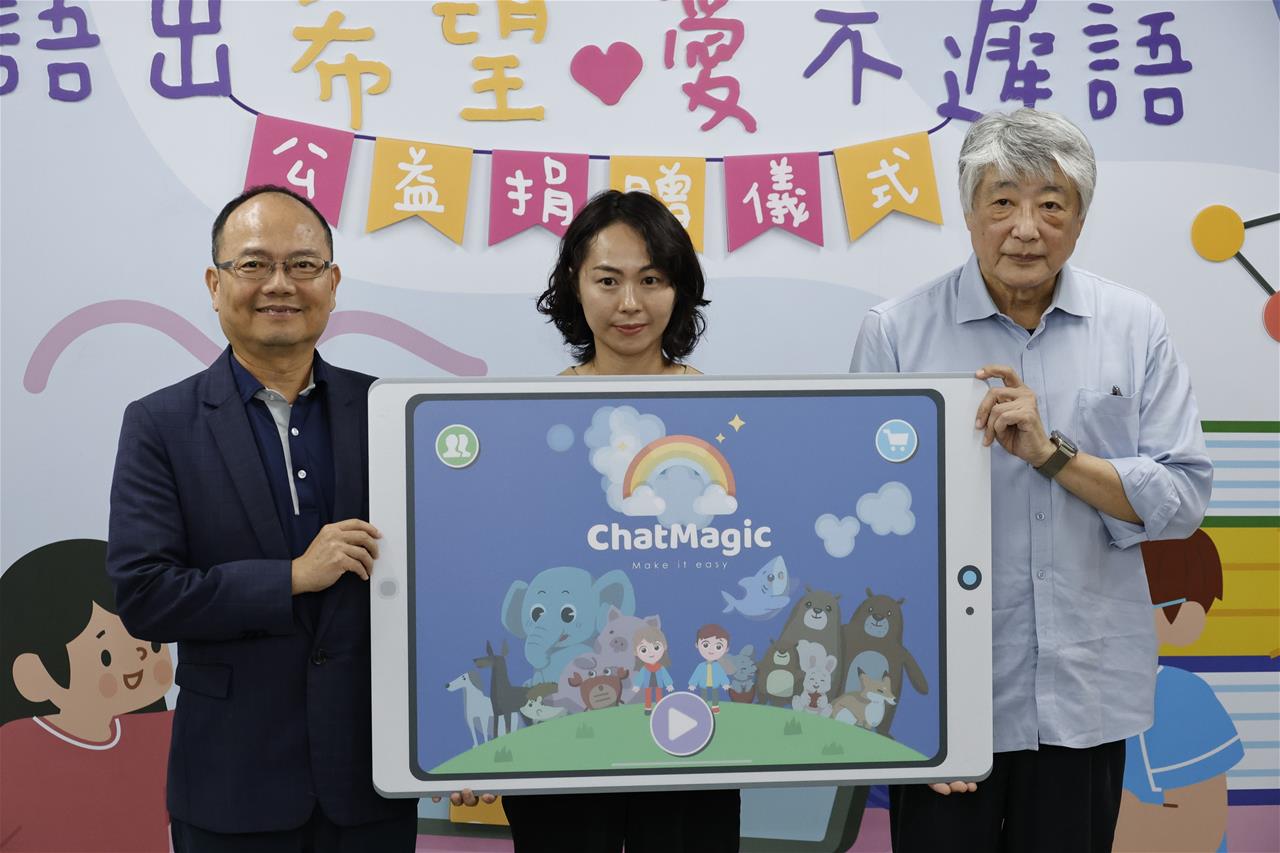
Language connects children to the world. Due to the ongoing shortage of speech therapists in Taiwan and the unequal access to resources in rural areas, the Metal Industries Research & Development Centre (MIRDC) leveraged the results from the Technology Development Programs of Department of Industrial Technology, the Ministry of Economic Affairs to create a speech interactive therapy software system by combining AI language models with clinical language data. Today (August 28), MIRDC held “Voices of Hope, Love Without Delay” donation ceremony, in collaboration with Po-Cheng Children Developing Center, Kaohsiung City Speech-Language Pathologists Union, and Kaohsiung Municipal United Hospital, at Po-Cheng Children Developing Center. This initiative aims to transform the approach of speech therapy by incorporating digital tools, providing long-term support for children as they learn language.
Yung-Hsiang Lai, President of MIRDC, explained that the newly developed system integrates generative AI with clinical language data to create a “virtual speech therapist.” This system can instantly comprehend children’s speech and offer multi-level language guidance through interactive games, effectively simulating the role of a therapist. This innovative system not only addresses the shortage of professional speech therapists but also extends language therapy beyond clinics into homes and classrooms. Moreover, it features a built-in language assessment scale that helps therapists track each child’s progress in a visualized manner and adapt intervention strategies in real time. Based on results from clinical trials, children using this system have made significant short-term improvements in semantics, pragmatics, and syntax, highlighting its powerful therapeutic effect.
Chia-Chen Huang, Chairman of the Kaohsiung City Speech-Language Pathologists Union, highlighted that in Taiwan, nearly 40,000 cases of developmental delay have been reported, emphasizing the urgent and increasing need for intervention services. She stressed that providing timely and consistent training during children’s critical language development period can significantly enhance their learning outcomes and social skills. The speech interactive therapy software system developed by MIRDC integrates insights from professional speech therapists, ensuring that its content aligns closely with real-world practices. Its higher degree of adaptability enables frontline therapists and parents to provide ongoing support for children through continuous speech training.
Ming-Ren Yang, President of the Po-Cheng Children Developing Center, emphasized that the donation provided children at the center with an early opportunity to engage in AI-based speech therapy, highlighting the significant potential of such tools in early intervention settings. With its user-friendly operations, real-time feedback, and interactive game-based role-play design, the software encourages children to practice language in a comfortable environment, significantly boosting their motivation to learn. Language is essential for child development. By investing more social resources in speech therapy, we can ensure that more children receive the timely support they need during this critical period of growth, helping them express themselves and speak confidently.
MIRDC will continue to improve the development and validation of the speech interactive therapy software system, broadening its application across more clinical and educational settings to ensure that every child has access to language development opportunities, regardless of geographic, resource, or other limitations. Simultaneously, through technology transfers, MIRDC will assist industry partners in commercializing products, thereby accelerating the adoption and accessibility of language therapy tools. By merging technology with professional expertise, this initiative aims to create a speech therapy system that supports children throughout their growth journey—transforming speaking confidently from a goal into the starting point for every child.